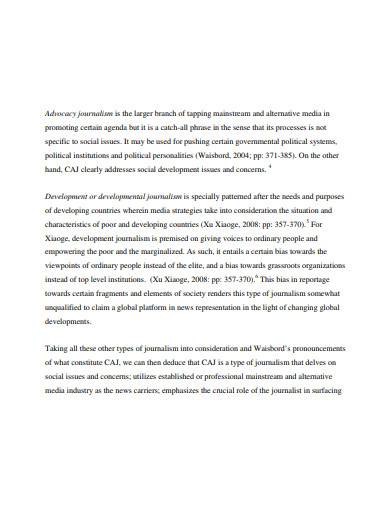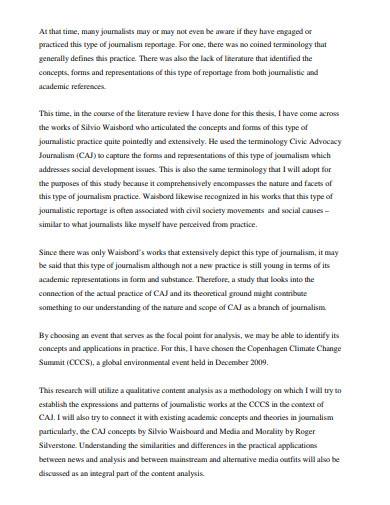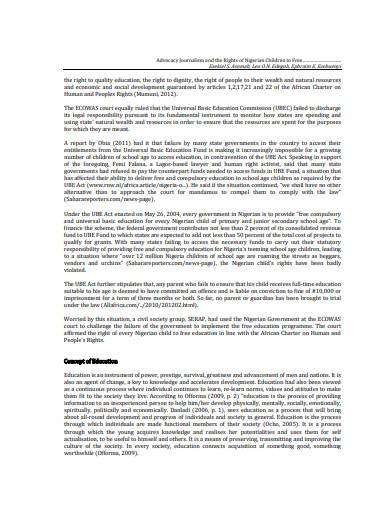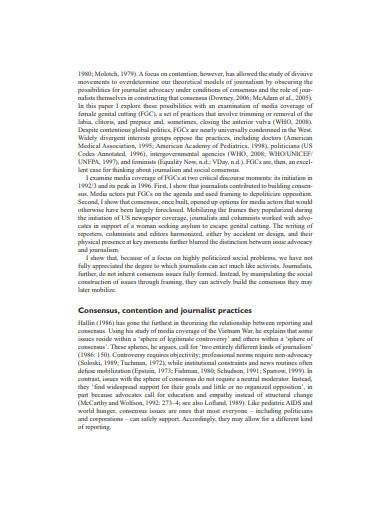Everyone deserves access to information. You have the right to gather and receive news from all sources. When someone tells you new information about something, it is you who decides if that thing is positive or negative. When it comes to information about current events, the first thing people run to is journalism outlets like newspapers reports. The primary intention of journalism is to inform and update people on the happenings of today. Calling journalist modern-day heroes wouldn’t be an exaggeration because of the way they serve the public. They aren’t technical writers, but they still follow certain technicalities, although some stray away from the prevailing trend, especially in advocacy journalism.
Journalism is a very demanding job. A lot of journalists would risk their lives just to get only the freshest and most accurate information. And when it comes to the good of the people, they would even go as far as breaking the bounds of objectivity. This is what you call advocacy journalism. When most news reports get delivered objectively, advocacy journalism is about reporting something from a given point of view. It advocates aspects that affect society. Unlike propaganda, this type of journalism is still very factual and doesn’t try to influence the minds of others heavily. Advocate journalists fashion their works intentionally and transparently in a way that supports social causes.
Importance
Journalism is now so liberal that many journalists break away from tradition. Not that it is a bad thing, but some critics say journalism has lost its touch. But when you add opinions and advocacies to the table, do things become chaotic? One of the characteristics of advocacy journalism is that it doesn’t hinder the writer from being objective. Advocacy journalism is an outlet for journalists who want their works to help improve the community. It’s not about making journalism part of any marketing plan. The most common time when advocacy journalism is present is when it comes to issues on environmentalism. If your stand isn’t on protecting the environment, then what is it actually for? Advocacy journalism jobs are all about promoting the good of society. By broadcasting campaigns for specific awareness and causes, many journalists find satisfaction in their field. This type of journalism takes social responsibility to a whole different level.
6+ Advocacy Journalism Samples
accomplishing work plans in the media is hard. There are many expectations for you and your output. This especially true of your forte is advocacy journalism. To give you a firm understanding of what advocacy journalism is, here are 6+ advocacy journalism samples you can check out.
1. Advocacy Journalism Sample
2. Basic Advocacy Journalism Template
3. Civic Advocacy Journalism Sample
4. Advocacy Journalism in PDF
5. New Documentary Advocacy Journalism Sample
6. Formal Advocacy Journalism Sample
7. Advocacy Journalism Example in PDF
Practice Your Journalism
As a journalist, it is your job to inform the people about the public events happening in your locale. And if there are issues that need tackling, you must be in the frontline speaking up about it. Promoting and campaigning for something for the good of the people is a type of journalism called advocacy journalism. To be a good advocate journalist, you need to keep in mind some tips for good advocacy journalism.
1. Pick the Right Issue
One of the primary duties of journalism is informing people about current topics. In advocacy journalism, you need to make daily reports on a subject that matters a lot to you. If you think that the issue has so many effects on society, it is your job to write about it. You don’t have to write everything, just focus on the main problem areas of your social advocacy.
2. Include Related Concerns
Issues relating to your primary concern should also get some light. Write about topics that could circle back to the main point you are advocating. When every little part gets fixed, the whole thing gets fixed as well. If your central advocacy is the environment, you can conduct risk assessments about pollution, illegal logging, and other concerns like that. Show your readers the factors that make your advocacy worth promoting.
3. Provide Multiple Points of View
As said before, advocacy journalism is not some kind of propaganda or political agenda. You need to provide various points of view for your reader to gain a non-singular basis. This way, you don’t force yourself on to your readers but, instead, help them conclude the report themselves. Providing facts is also a must in any type of journalism.
4. Add Holistic Information
When you are so set on professionally writing about something, you need to have all the information about it. You need to understand it and all its aspects. Relay all these facts to your readers comprehensively. You should also report on the impacts the issue has locally, nationally, and internationally. If you have to, you can even call out significant players of the problem.
5. Discuss the Topic
As a journalist, you need to be liberal and open-minded. Provide holistic views that make it easier to communicate about your issue. Let your readers understand your topic fully and be ready when there are things they want to discuss. Data analysis and talking about the issue helps spread awareness about it. It would help if you didn’t back down when debate arises.
6. Celebrate Your Wins
When you think you’ve done your part as an advocate journalist, you can now celebrate.
Everyone should have advocacies, something they want to fight for. And when the battle has been fought and won, you can swim in satisfaction.
Related Posts
Event Program
OMR Sheet
Building Inspection Report
Employment Certificate
Teacher Lesson Plan
Deed of Assignment
Contract Termination Letter
Student Research Proposal
Diet Plan
Housekeeping Resume
Marriage Proposal Letter
Nursing Resume
Fund Transfer Letter
Purchase Order Cancellation Letter
Certificate of Service







